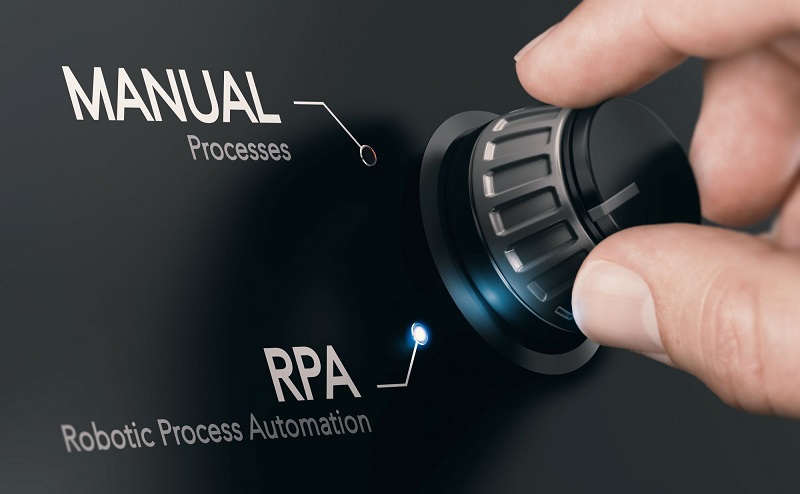Knowing how to improve productivity is crucial for businesses that want to upscale. This is vital if they want to outperform competitors or increase profits over time. Luckily, there are many ways to achieve such an end.
For your business to become more productive, one step is to focus on employee development. You can do this by providing continuous training and offering staff flexibility through a hybrid work policy. Likewise, another step is to use automation software.
The advancement in technology significantly automated business tasks. This reduces the responsibility of employees, allowing them to focus on more crucial processes. Automation also enables the execution of error-free tasks, leading to improved operations.
One particularly effective form of automation software is Robotic Process Automation (RPA). If you want to automate some of your business tasks, knowing more about Robotic Process Automation (RPA) is ideal. This article will tackle what it’s about and the benefits it provides. Read on to know all of them.
What Is Robotic Process Automation
RPA is software that enables a robot or bot to function under an individual’s instructions. RPA bots can imitate most human-computer interactions to perform tasks with zero errors at high speed and volume. This streamlines your operation over time.
When integrated with artificial intelligence (AI), machine learning (ML), optical character recognition (OCR), and natural language processing (NLP), RPA’s capabilities can be further expanded.
This integration allows RPA to gain deeper context from the content it interacts with, such as reading handwritten or printed text using OCR. Additionally, it can extract valuable information like invoice terms, names, or addresses through NLP. RPA can even analyze context from images, such as automatically assessing accident damage in insurance claim photos.
One compelling example of RPA in action can be found in the healthcare industry. By automating routine tasks like appointment scheduling, streamlining patient data management, processing insurance claims, and monitoring inventory levels of medication and supplies, RPA significantly optimizes workflows and reduces errors.
This increased efficiency and accuracy ultimately improve the quality of services delivered. By handling these repetitive tasks, automation solutions allow healthcare professionals to focus on providing patient-centric care, fostering better patient experiences and outcomes.
How Can Robotic Process Automation Help Your Business?
Your business can save time and money and become more efficient through RPA. Complying with regulations is also attainable. Read on to know more about these benefits.

-
Cost- Savings
The RPA market is growing as more businesses want to reduce operational costs. Other businesses have proven that this technology can lower expenses tied to hiring full-time offshore staff. Likewise, two other reasons RPA saves you money are:
- Limits Downtime: RPA can operate full-time. It doesn’t have issues a typical employee experiences, such as holiday leaves and sick days.
- Easy To Implement: You can quickly set up and employ data entry bots within days. You can set up today’s new RPA system faster than training new staff. This allows you to avoid spending time reassessing resumes, performing interviews, and facing the hiring process.
- Limits Dependence On Third-Party Services: Many businesses are outsourcing their main procedures, such as accounting or customer service interactions, using Software as a Service (SaaS). This leads them to spend more money. However, a business can lay out RPA bots in-house to automate these core procedures, preventing reliance on third-party services. Thus, large or small businesses can also limit money spending because of it.
In the end, as RPA saves money, it’ll give your business more financial resources for other activities, such as marketing and other production procedures.
-
Improves Productivity
As RPA automates repetitive and tedious tasks, you can allocate your staff’s effort to more valuable business functions and boost customer service. This is why there’s more demand for RPA software for various industries.
One specific way RPA improves productivity is by assisting software development teams, especially in various tech companies. Automated bots can conduct builds and unit tests to attain goals with Development Operations (DevOps).
Automating repetitive tasks in data entry is also possible through this cutting-edge software. This boosts productivity in analyzing and reporting data, especially when your business matches RPA with AI and ML algorithms.
-
Enhances Compliance
Businesses from various industries and locations must adhere to legal regulations to secure their staff, customers, and business functions. Proper compliance is needed to avoid legal expenses and reputational issues.
Fortunately, RPA can improve your compliance with various rules, especially concerning data management and fiscal legislation. RPA can also conduct automated testing to perform the most basic checks.
Additionally, you can also access and process sensitive information because of RPA. This is attained without human intervention, allowing for more data privacy and avoiding such data from becoming unintendedly exposed.
Wrapping Up
Robotic Process Automation (RPA) represents an advanced technological solution that can significantly enhance your business operations. By automating repetitive and routine tasks, RPA not only streamlines workflows but also saves valuable time and effort. Furthermore, this innovative tool assists in achieving compliance with data regulations. If you believe RPA could be beneficial, your business can swiftly adopt it and start reaping the rewards.
















